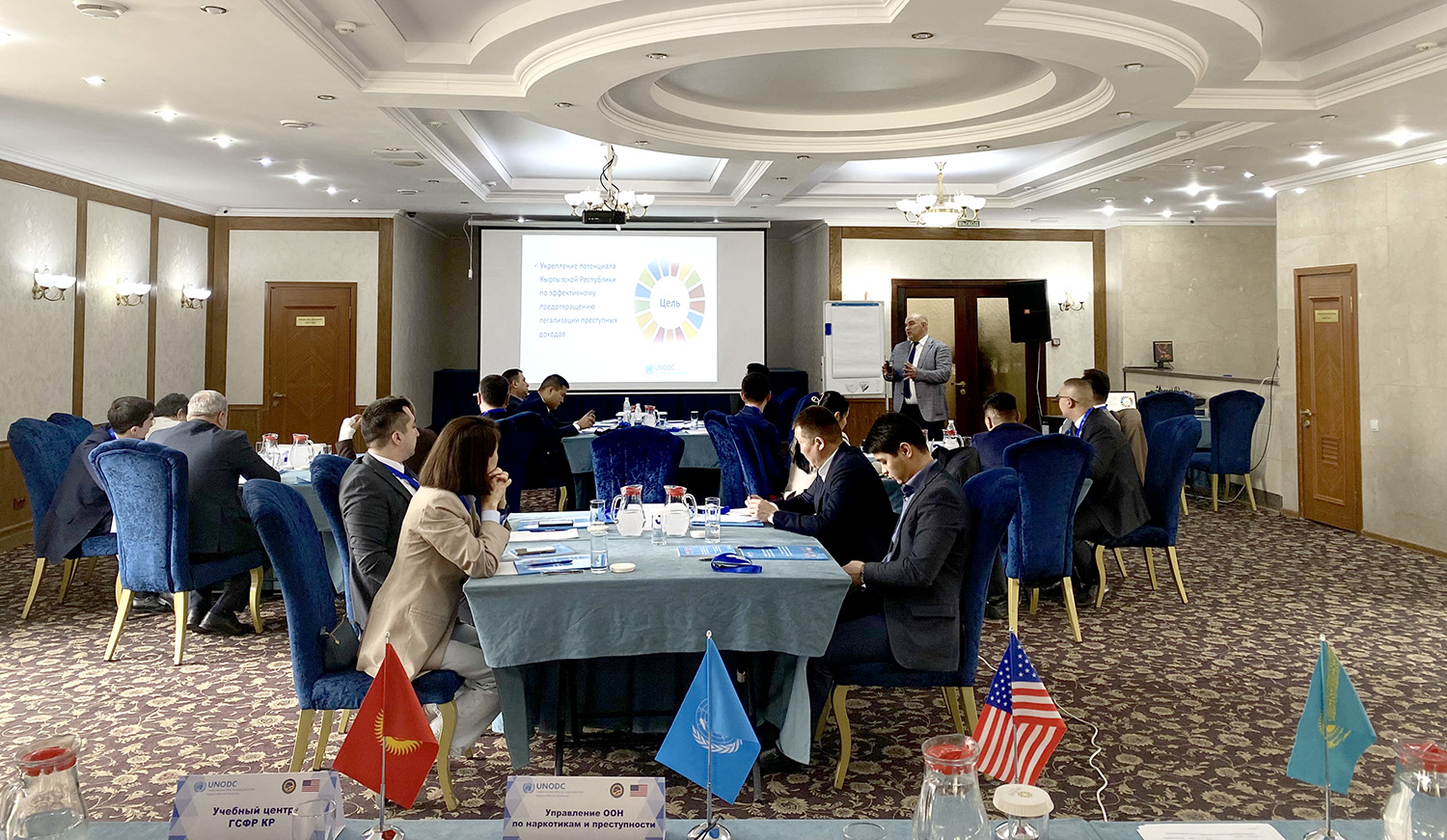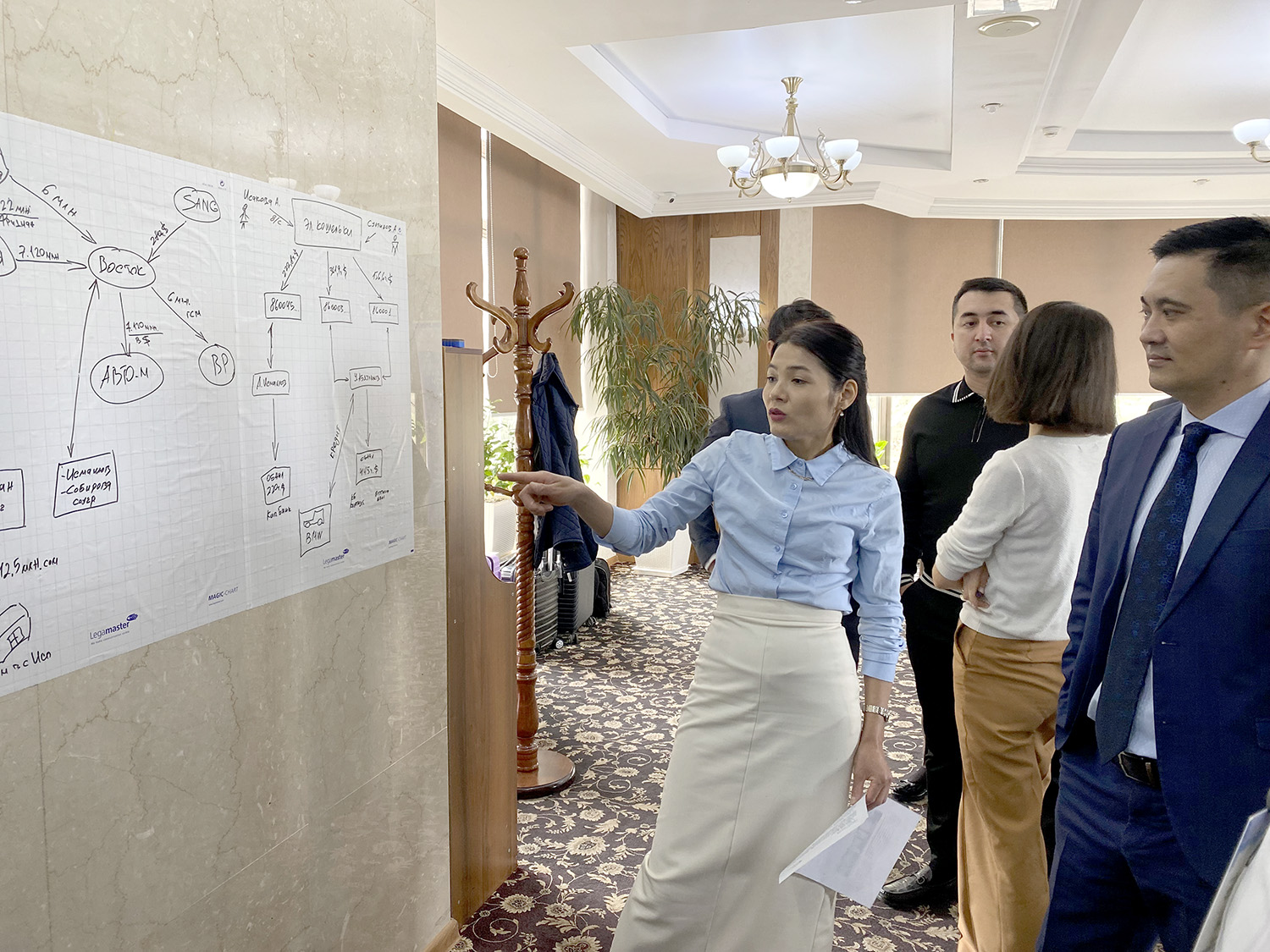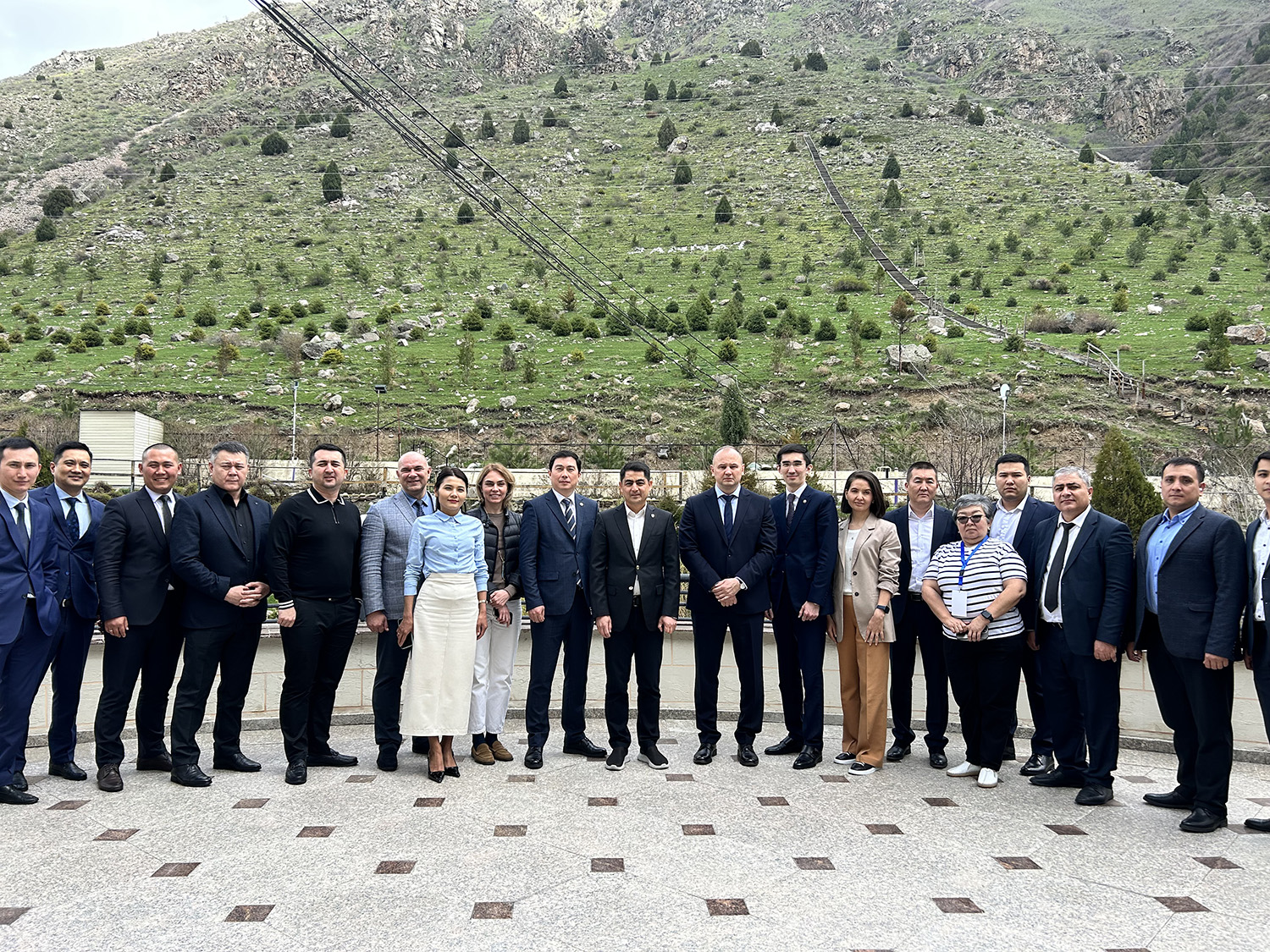
Member states are paying increased attention to the effectiveness of systems to combat money laundering from various types of criminal activities, including corruption, drug trafficking, and fraud. As practice shows, an effective tool for such work is the implementation of the concept of parallel financial investigations.
Mutual assessments have shown that even developed countries face challenges in this regard. At the same time, the international community is increasingly focusing on the ability of competent authorities to conduct and support money laundering (ML) investigations and to deprive criminals of their income.

Following the event, the participants shared their opinions, Ms. G. Duishenbekova, a teacher at the Higher School of Justice at the Supreme Court of the Kyrgyz Republic, noted that joint training of investigators, prosecutors and judges is extremely important for interdepartmental interaction, as well as for judges’ understanding of the signs of ML and the correct assessment of evidence in consideration of cases, the amount of work that the investigator and prosecutor carry out in the pre-trial investigation.
Representatives of the judiciary identified differences between the Kyrgyz system and international standards. Participants from the Prosecutor General’s Office of Kyrgyzstan highly appreciated the use of modern methodology in conducting the training and noted the importance and relevance to the practical tasks, during which the participants were able to demonstrate their skills in teamwork and understand the functions of each participant in the investigation process. “In the context of modernization, crime is increasing and interaction between departments is extremely important for the successful investigation of ML cases,” noted Mr. A. Khurshudov, a representative of the Kyrgyz prosecutor’s office.
It should be noted the high level of expert work during the event was exemplified by the international trainer, the Deputy Head of the Law Enforcement Academy, Mr. Nigmadjanov Uygun, who was trained within the framework of UNODC training programs.
The event took place on 15-17 April in the Kyrgyz Republic with expert support from the Global Program against Money Laundering and Counter-Terrorism Financing (GPML) and financial support from the International Narcotics and Law Enforcement Program (INL), the US Department of State.

In this context, a team of UNODC experts has developed specialized training for financial intelligence units, prosecutors, and the judiciary. This training covers the specifics of financial investigations, criminal prosecutions, and the adjudication of money laundering cases in court. The training methodology, which is based on practical cases and considers national specifics of anti-money laundering legislation, has been successfully implemented in Uzbekistan and Kazakhstan.
A logical continuation of this work was a regional training for employees of the competent authorities of the Kyrgyz Republic, with the participation of representatives of the competent authorities of Kazakhstan and Uzbekistan.
During his speech, the Head of the Judicial Administration of the Republic of Kazakhstan, Vice-President of the International Association for Judicial Administration for the Central Asian region, Mr. Nail Akhmetzakirov, noted:
“... our countries have made some progress in combating international organized crime: a legal framework has been established, specialized bodies are functioning, and cooperation is taking place between countries. At the same time, there are areas in which we can increase the effectiveness of our cooperation. One of these areas is suppressing illicit financial flows from drug trafficking and depriving criminals of their income.
The United Nations Office on Drugs and Crime, Regional Office for Central Asia makes a major contribution to the development of progress and support for these efforts. The invaluable experience, knowledge and resources available to the UNODC Global Anti-Money Laundering Program expand our understanding of how to combat money laundering”.